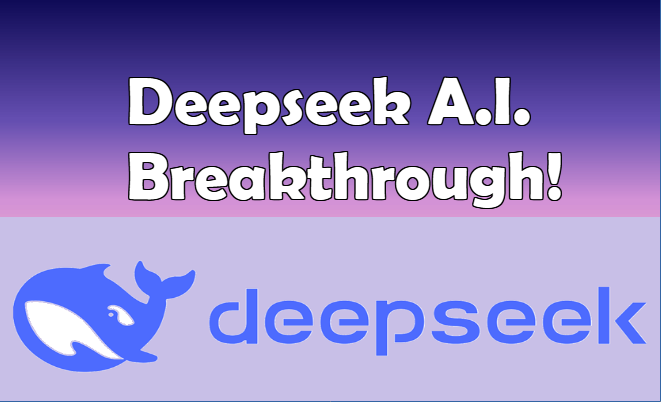An article for aspiring developers
Coding is a relatively understandable term now most of the teens understand what it is in India. Its a country with more than 140 Cr population and they are taught coding in their primary school days. Its clear that the digital revolution has radically transformed nearly every aspect of our lives, including education. Among the most significant shifts is the rise of online learning, which has democratized access to high-quality education and professional development opportunities. One field where this change is particularly evident is coding. With the increasing demand for skilled developers and the flexibility of online platforms, many individuals are considering online coding courses as a viable path to learning programming languages and acquiring the skills necessary for a successful tech career. This article Online coding courses delves into the reasons why one should consider online coding courses, provides a comparative analysis of some of the top courses available, and discusses their fees to help you make an informed decision.
Why Opt for Online Coding Courses?
- Flexibility and Convenience: Online coding courses offer unparalleled flexibility. Whether you’re a full-time student, a working professional, or someone managing household responsibilities, online courses allow you to learn at your own pace and on your schedule. This flexibility is a game-changer, making education accessible to a broader audience.
- Cost-Effectiveness: Traditional classroom-based courses often come with hefty tuition fees, commuting costs, and additional expenses for materials and accommodation. Online courses, on the other hand, tend to be more affordable. Many platforms offer high-quality content at a fraction of the cost of traditional education, and some even provide free courses.
- Wide Range of Courses: The variety of online coding courses available today is staggering. From foundational courses in HTML, CSS, and JavaScript to advanced topics like machine learning, data science, and blockchain development, there is something for everyone. This diversity allows learners to tailor their education to their specific career goals and interests.
- Access to Expert Instructors: Many online coding courses are taught by industry experts and experienced professionals. This access to high-quality instruction can provide valuable insights and practical knowledge that might be difficult to obtain in a traditional classroom setting.
- Hands-On Experience: Online coding courses often emphasize practical, hands-on learning. Through coding challenges, projects, and real-world applications, students can develop their skills in a way that is directly applicable to the workplace. This experiential learning approach is crucial for mastering programming.
- Community and Networking: Many online platforms foster a sense of community among learners through discussion forums, peer reviews, and collaborative projects. These interactions can lead to valuable networking opportunities and support systems that enhance the learning experience.
Comparative Analysis of Top Online Coding Courses
To help you navigate the plethora of online coding courses available, we’ve compiled a comparison table of some of the most popular platforms. This table includes key details about each course, including duration, level, subjects covered, and fees.
| Course Provider | Course Name | Duration | Level | Subjects Covered | Fees |
|---|---|---|---|---|---|
| Coursera | Python for Everybody | 8 months | Beginner | Python, Data Structures, Web Development | $39/month |
| Udacity | Full Stack Web Developer Nanodegree | 4 months | Intermediate | HTML, CSS, JavaScript, SQL, Web Development | $399/month |
| Codecademy | Pro Intensive: Full-Stack Engineer | 6 months | Beginner to Advanced | HTML, CSS, JavaScript, React, Node.js | $199/year |
| edX | CS50’s Introduction to Computer Science | 12 weeks | Beginner | C, Python, SQL, HTML, CSS, JavaScript | Free, $199 for certificate |
| Pluralsight | Becoming a Full-Stack Web Developer | 6 months | Intermediate | HTML, CSS, JavaScript, Angular, Node.js, MongoDB | $29/month |
| Treehouse | Techdegree: Front End Web Development | 3 months | Beginner to Intermediate | HTML, CSS, JavaScript, React | $199/month |
| LinkedIn Learning | Learning Python | 5 hours | Beginner | Python, Data Analysis | $29.99/month |
| Khan Academy | Intro to JS: Drawing & Animation | Self-paced | Beginner | JavaScript, HTML, CSS | Free |
| FutureLearn | Introduction to R for Data Science | 4 weeks | Beginner | R, Data Science, Statistical Analysis | Free, $79 for certificate |
| The Odin Project | Full Stack Ruby on Rails | Self-paced | Beginner to Advanced | HTML, CSS, JavaScript, Ruby, Rails | Free |

In-Depth Course Reviews
- Coursera: Python for Everybody
- Overview: This specialization, offered by the University of Michigan, covers the basics of programming using Python. It’s designed for beginners and includes five courses.
- Pros: Comprehensive, beginner-friendly, taught by an experienced professor, flexible schedule.
- Cons: Requires a subscription, may be too slow-paced for those with some prior experience.
- Udacity: Full Stack Web Developer Nanodegree
- Overview: This program is designed to equip students with the skills needed to become full-stack web developers. It includes interactive projects and mentorship.
- Pros: Project-based learning, personal mentorship, job-ready skills.
- Cons: High cost, intensive time commitment.
- Codecademy: Pro Intensive: Full-Stack Engineer
- Overview: Codecademy’s intensive program covers front-end and back-end development, with a focus on practical, real-world projects.
- Pros: Hands-on approach, self-paced, comprehensive curriculum.
- Cons: Requires a Pro subscription, may lack depth in some advanced topics.
- edX: CS50’s Introduction to Computer Science
- Overview: Harvard University’s renowned CS50 course covers a broad introduction to computer science and programming concepts.
- Pros: Free to audit, prestigious instructor, comprehensive introduction.
- Cons: Challenging for absolute beginners, time-intensive.
- Pluralsight: Becoming a Full-Stack Web Developer
- Overview: This path covers essential front-end and back-end technologies and frameworks, designed for those with some prior coding experience.
- Pros: Wide range of topics, flexible learning, high-quality content.
- Cons: Subscription required, assumes some prior knowledge.
- Treehouse: Techdegree: Front End Web Development
- Overview: This program is focused on front-end development, with a curriculum that includes projects and portfolio building.
- Pros: Project-based, great community support, job-ready skills.
- Cons: Monthly subscription can add up, primarily focused on front-end.
- LinkedIn Learning: Learning Python
- Overview: A brief course on Python basics, suitable for beginners looking to get a quick start.
- Pros: Short duration, practical examples, access to a wide range of additional courses.
- Cons: Limited depth, requires a LinkedIn Learning subscription.
- Khan Academy: Intro to JS: Drawing & Animation
- Overview: A creative introduction to JavaScript programming through drawing and animation projects.
- Pros: Free, engaging and interactive, suitable for all ages.
- Cons: Limited to JavaScript, not as comprehensive for career preparation.
- FutureLearn: Introduction to R for Data Science
- Overview: This course covers the basics of R programming and its application in data science.
- Pros: Free access, focused on data science, community interaction.
- Cons: Certification requires payment, basic level only.
- The Odin Project: Full Stack Ruby on Rails
- Overview: A self-paced, free course that covers full-stack development using Ruby on Rails.
- Pros: Completely free, extensive curriculum, community support.
- Cons: Requires self-discipline, less structured guidance.
Making the Right Choice
Choosing the right online coding course depends on various factors, including your current skill level, career goals, budget, and learning preferences. Here are a few tips to help you decide:
- Assess Your Current Skills: If you are a complete beginner, courses like Coursera’s “Python for Everybody” or edX’s “CS50” might be more appropriate. Intermediate learners might benefit from Udacity’s “Full Stack Web Developer Nanodegree” or Pluralsight’s offerings.
- Define Your Goals: Are you looking to transition into a full-time coding career, or do you want to add coding skills to your existing job? For career changers, comprehensive programs like Codecademy’s Pro Intensive or Treehouse’s Techdegree might be ideal. If you’re looking to enhance your skills, shorter courses on specific technologies might be more suitable.
- Consider Your Budget: While some of the best courses come with a price tag, there are also excellent free resources available. Platforms like Khan Academy and The Odin Project provide high-quality content without the cost.

- Evaluate Learning Style: If you prefer structured learning with deadlines, programs with a fixed duration might work best. If you need more flexibility, self-paced courses are a better fit.
- Check Community and Support: Learning coding can be challenging, and having access to a supportive community or mentors can make a significant difference. Platforms like Udacity and Treehouse offer mentorship and peer support, which can enhance your learning experience.
Conclusion
Online coding courses have revolutionized the way people learn to code, offering flexibility, affordability, and access to top-tier education. Whether you’re a complete beginner or an experienced developer looking to learn new skills, there’s an online course out there for you. By carefully considering your needs, goals, and available resources, you can choose the course that best fits your journey into the world of coding. Embrace the opportunity, and take the first step towards a rewarding career in technology.





Thanks for sharing. I read many of your blog posts, cool, your blog is very good.
I don’t think the title of your article matches the content lol. Just kidding, mainly because I had some doubts after reading the article.
This is one of the most informative posts I’ve read on this topic. Your clear explanations and real-life examples are incredibly helpful.
Thanks: Site Admin!